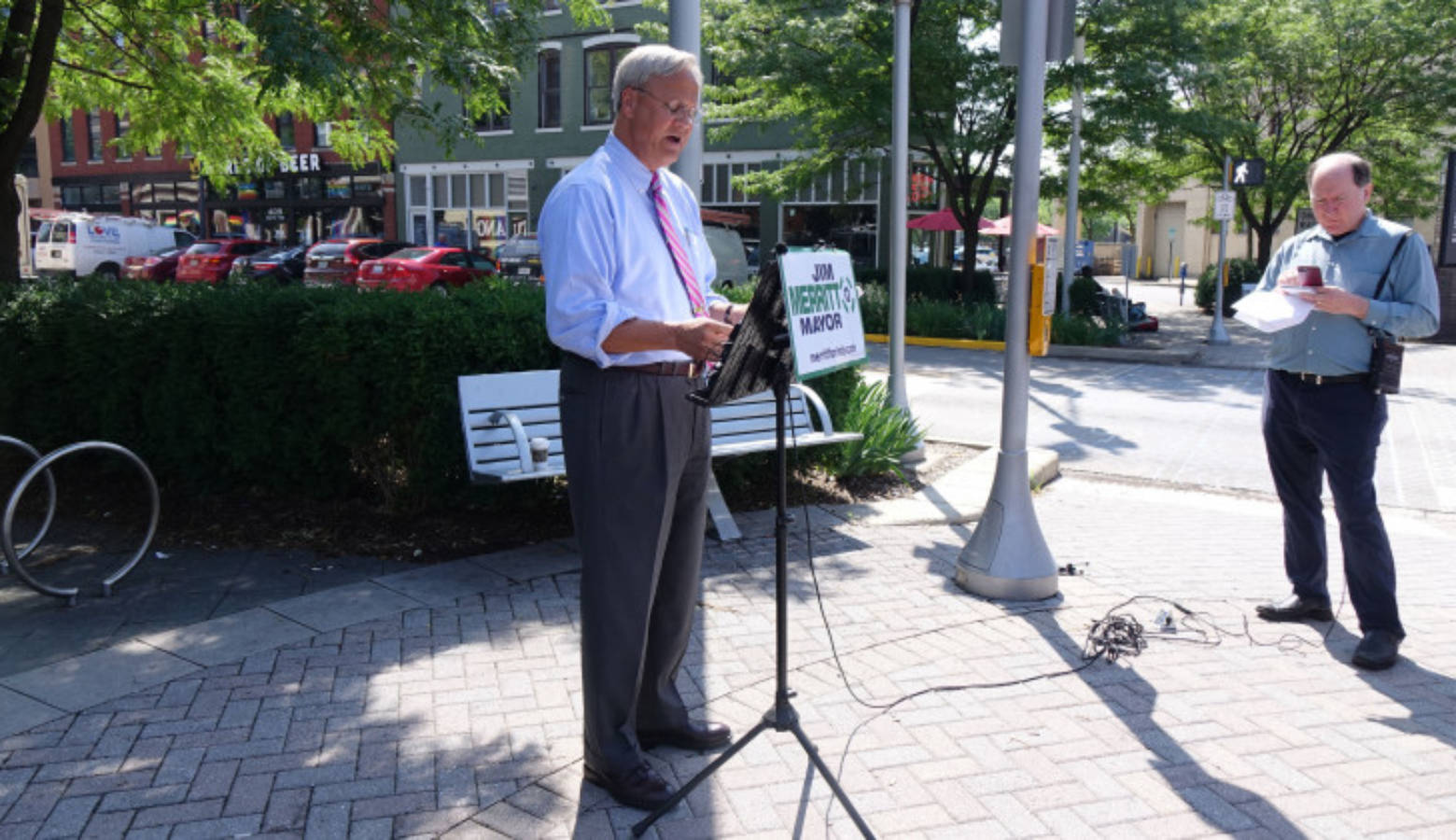Indy Mayoral Hopeful Jim Merritt Will Not March at Indy Pride

A public disagreement between organizers of the Indy Pride parade and a Republican candidate for Indianapolis mayor has been settled – the candidate won’t be marching.
Republican state Senator Jim Merritt says he will not march in the Indy Pride parade out of respect for the feelings and wishes of the organizers and participants of the event.
This comes after a statement from Indy Pride on Tuesday which said while Merritt is permitted at the event, he is not welcome.
“This is Indy Pride’s celebration,” Merritt says. “I don’t want to be a distraction. I don’t want to dampen it for them. Therefore, I will not be marching in the pride parade on Saturday, because I do respect their rights, their feelings and their wishes, and the wishes of those who organize and participate in this event.”
Merritt says he does regret his initial vote for the Religious Freedom Restoration Act, RFRA, in 2015.
“When I learned it could be used as a sword against members of the LGBTQ+ community, I became an advocate for and voted in favor of the RFRA fix,” Merritt says.
The RFRA fix explicitly ensured the law couldn’t be used to deny services based on sexual orientation and gender identity.
Merritt says he worked to pass last session’s hate crime law with protective language for a list of victim characteristics that included race, sexual orientation and gender identity.
“Sadly, the bill was amended removing a list of protected characteristics,” Merritt says. “Although far from perfect, I believe it’s better to increase protections rather than to make no progress at all.”
That said, Merritt is also the chair of the Senate Republican caucus that stripped the bill of that language, before House Republicans later introduced an attempted compromise.
Merritt asked to be judged not by his past votes but rather by his actions moving forward.
